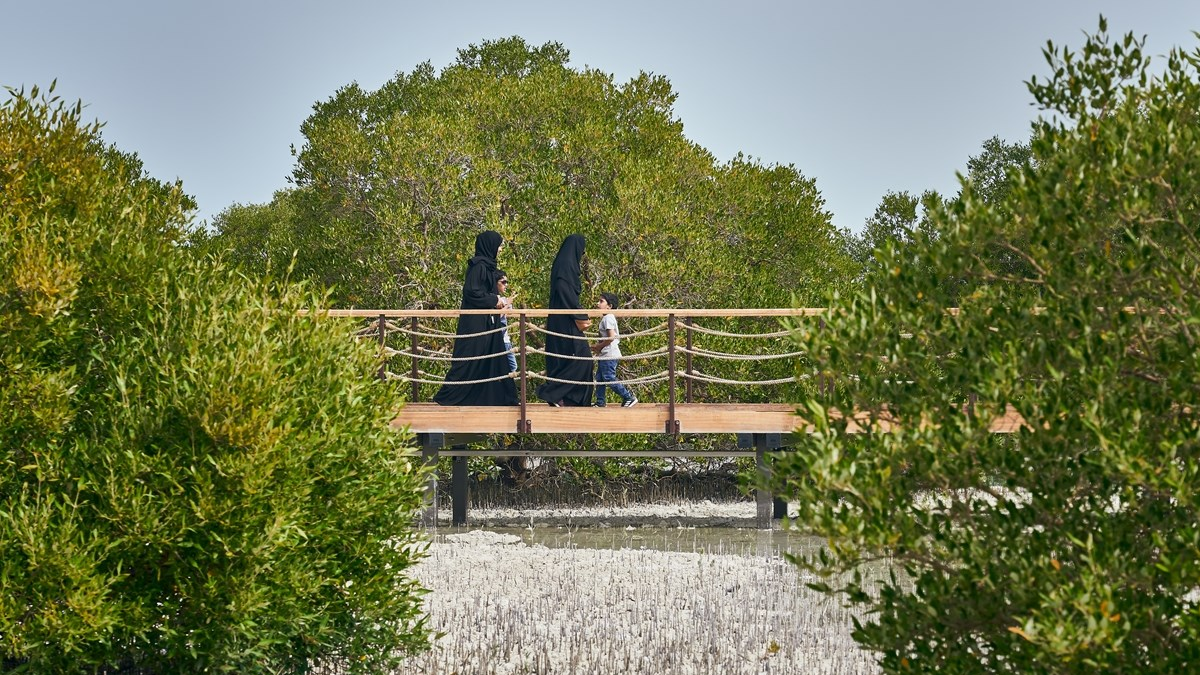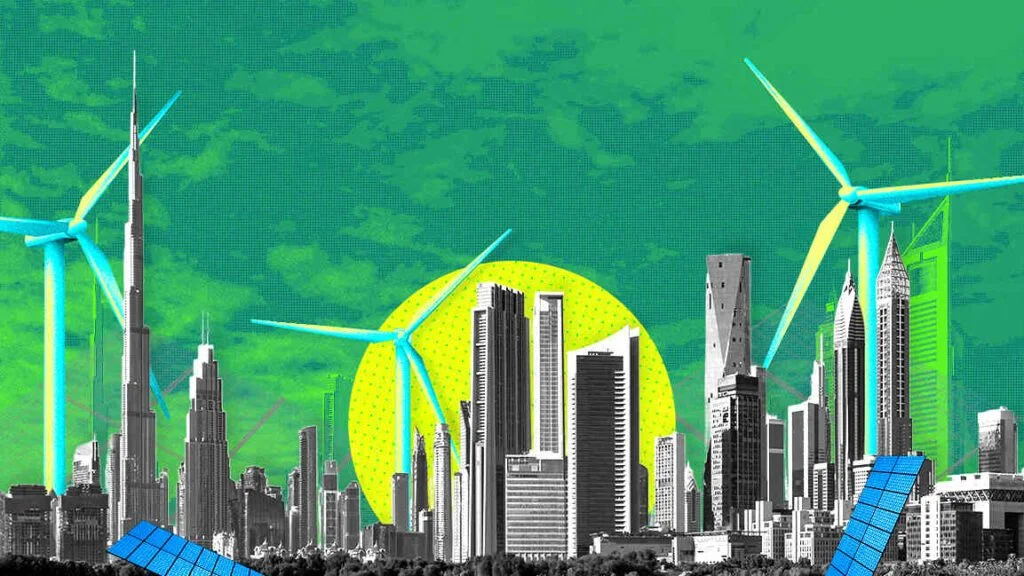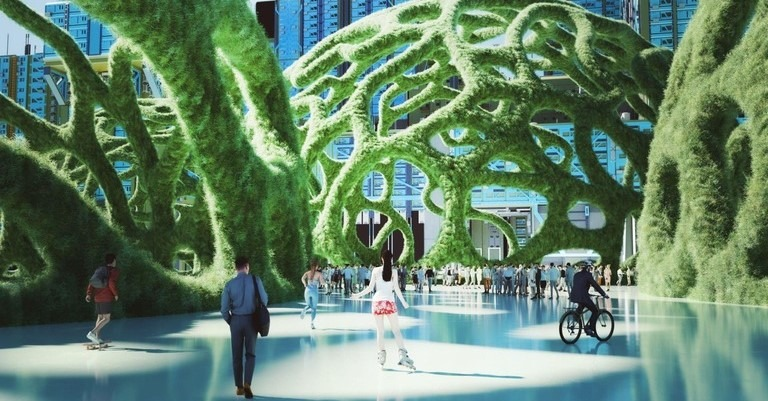
The United Arab Emirates (UAE) is proving to the world that sustainability is not just a trend, but a necessity for modern living. As one of the fastest-growing economies in the Middle East, the UAE is making great efforts to balance progress with protection of the environment. Through various environmental initiatives, the country is creating a roadmap for other nations to follow.

The UAE’s environmental strategy aligns with its national vision, particularly the UAE Vision 2030 and 2050 Environmental Policy. These long-term plans focus on reducing carbon emissions, protecting natural resources, and promoting renewable energy sources. The UAE government is determined to create an economy that does not depend entirely on oil, but rather thrives on sustainable industries such as clean energy, green transportation, and eco-friendly urban development.
One of the key strategies in this plan is the UAE Net Zero by 2050 initiative, which aims to achieve zero carbon emissions in the next 25 years. This target puts the UAE among the leading countries in the world committed to fighting climate change.
A central part of the UAE’s green initiatives is investing in renewable energy projects. The Mohammed bin Rashid Al Maktoum Solar Park in Dubai is the largest single-site solar park in the world. This massive solar farm is expected to produce over 5,000 megawatts of clean energy by 2030, which will reduce carbon emissions by millions of tons each year.
Similarly, the Al Dhafra Solar Project in Abu Dhabi, another flagship renewable energy project, will soon become the world’s largest solar plant once completed. It is designed to power nearly 160,000 homes, showing the UAE’s deep commitment to clean energy.
Apart from solar energy, the UAE is also researching and developing wind power and hydrogen energy to diversify its renewable energy portfolio.
Urban growth is rapid in the UAE, but the country ensures this growth happens responsibly. Cities like Masdar City in Abu Dhabi are examples of sustainable urban development. Masdar City is designed to be a low-carbon, zero-waste city, using energy-efficient buildings, smart water systems, and driverless electric vehicles to reduce pollution.
The Estidama Pearl Rating System, launched by the Abu Dhabi Urban Planning Council, ensures that new buildings meet sustainability standards, including energy efficiency, water conservation, and environmentally friendly construction materials.
These efforts are not only good for the planet but also improve the quality of life for residents by offering cleaner air, less noise, and greener spaces.
Transportation is one of the biggest contributors to carbon emissions worldwide. To address this, the UAE is encouraging the use of electric vehicles (EVs) and hybrid cars. The government provides incentives such as free parking, toll exemptions, and reduced registration fees to EV owners.
Dubai has set a target of having 42,000 electric cars on the roads by 2030, while charging infrastructure is rapidly expanding across the country. The introduction of electric buses and the promotion of cycling tracks in cities like Dubai and Abu Dhabi are also part of this green transportation shift.
Additionally, the futuristic Etihad Rail project will reduce heavy truck usage on roads and offer a more environmentally friendly alternative for transporting goods across the country.
The UAE is working hard to reduce the amount of waste that ends up in landfills. The Zero Waste to Landfill by 2030 initiative is a major goal for cities such as Dubai, which has launched projects like the Dubai Waste Management Centre—expected to become one of the world’s largest waste-to-energy plants.
Recycling programs have been introduced across all emirates to encourage residents to sort waste properly. Moreover, campaigns to reduce single-use plastic, such as the Abu Dhabi Single-Use Plastic Policy, have helped reduce plastic pollution in the environment.
While technology and industry are essential, the UAE has not forgotten about the importance of nature. The country has established several protected areas and wildlife reserves to protect its unique desert, marine, and mountain ecosystems.
For example, the Al Marmoom Desert Conservation Reserve in Dubai is the largest unfenced nature reserve in the country, helping protect desert plants and wildlife. Similarly, the Mangrove Conservation Project in Abu Dhabi aims to plant millions of mangrove trees, which help absorb carbon dioxide and protect coastal areas from erosion.
These projects not only safeguard the environment but also promote eco-tourism, allowing visitors to experience the beauty of the UAE’s natural landscapes in a responsible manner.

The UAE is also playing a key role on the international stage. It hosted the COP28 Climate Summit in 2023, where world leaders gathered to discuss global climate action. This event highlighted the UAE’s leadership in promoting green policies not just at home, but globally.
Moreover, UAE-based companies such as Masdar Clean Energy are investing in renewable energy projects in other countries, including wind and solar farms across Europe, Asia, and the Americas.
The UAE’s environmental initiatives are more than just government policies—they reflect a national movement toward sustainability in every sector. From clean energy and green transportation to waste management and biodiversity protection, the country is setting an example for the entire Middle East and beyond.
These efforts will not only help the UAE meet its ambitious climate targets but also create new economic opportunities, attract eco-conscious investors, and improve the health and well-being of its citizens.
As the world watches, the UAE continues to lead the way in building a greener, more sustainable future.
Read More:- Shobha Realty Launches Its Most Luxurious Project Yet—Full Details Inside 2025
